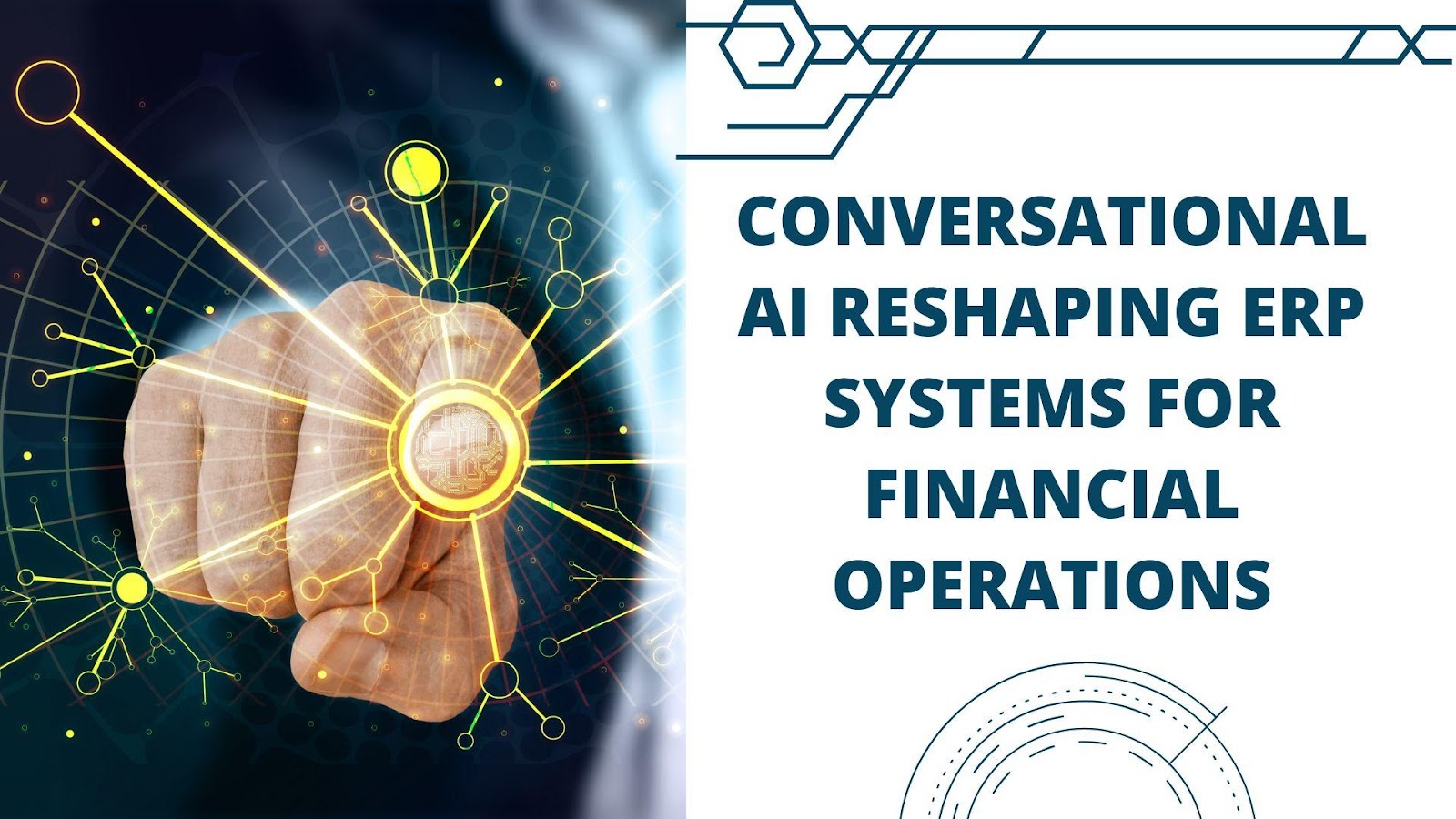A revolutionary shift in enterprise financial management is underway with the integration of Conversational AI in ERP systems. Bhagavathi Sathya Satish Kadiyala explores this transformation, highlighting how Natural Language Processing (NLP) is making ERP interfaces more intuitive and accessible. His latest work demonstrates how NLP is transforming financial operations by making ERP interfaces more user-friendly.
Breaking Barriers in ERP Accessibility
Traditional ERP systems are often cumbersome, requiring extensive training for users to navigate complex financial data structures. The integration of NLP eliminates these barriers by enabling users to interact with financial systems using natural language queries. This evolution not only enhances accessibility for non-technical users but also increases adoption rates across organizations.
The Technical Framework Behind AI-Driven ERP
At the heart of this transformation is a hybrid architecture that combines rule-based processing with deep learning. The use of advanced transformer models, particularly domain-adapted BERT frameworks, enables precise financial query interpretation with over 92% accuracy. These innovations ensure that users can retrieve financial insights rapidly without requiring extensive manual input.
Speed and Efficiency in Financial Query Processing
By leveraging NLP-driven query optimization, ERP systems are now achieving a 65% improvement in response times. The technology converts natural language queries into structured database commands, drastically reducing the time required for financial data retrieval. Organizations report a 30% decrease in data processing time, streamlining financial decision-making.
Enhancing Security and Compliance
One of the most critical aspects of AI-driven ERP integration is security. Multi-layered authentication mechanisms, including AI-enhanced biometric verification and blockchain-backed audit trails, ensure data integrity and regulatory compliance. These measures have resulted in an 85% reduction in unauthorized access attempts while maintaining high processing speeds.
Automating Financial Workflows
Conversational AI enables the automation of complex financial tasks, such as invoice processing, tax calculations, and cash flow analysis. Organizations utilizing these AI-powered workflows experience a 70% reduction in processing time, leading to enhanced efficiency and accuracy in financial reporting.
AI-Powered Analytics for Smarter Decision-Making
Beyond automation, NLP-enhanced ERP systems are driving intelligent financial forecasting. By analyzing spending patterns and historical transaction data, AI models predict budget variances with over 91% accuracy. This predictive capability enables businesses to make proactive financial decisions and mitigate potential risks before they escalate.
The Future of ERP: Seamless AI Integration
As AI technology continues to evolve, the future of ERP systems lies in even greater automation, improved contextual understanding, and seamless integration with emerging technologies like edge computing and federated learning. With advancements in AI-driven compliance monitoring and security, ERP systems are set to become more robust and user-friendly.
Driving User Adoption and Business Efficiency
User adoption rates for NLP-powered ERP systems have soared, with organizations reporting a 92% increase in engagement within four months of deployment. Employees save an average of 4.2 hours per week, leading to significant operational efficiencies. Additionally, automation has led to a 55% reduction in data reconciliation efforts, allowing finance teams to focus on strategic analysis rather than routine administrative tasks.
Transforming Financial Communication
With AI-powered natural language interfaces, inter-departmental collaboration has significantly improved. Organizations have reported an 85% reduction in query resolution time, as employees can now retrieve financial data instantly through intuitive conversational interfaces. Real-time insights enhance decision-making and ensure transparency across financial operations.
Expanding AI Capabilities in Financial Management
The adoption of AI-driven ERP systems is advancing financial automation, including predictive budgeting and fraud detection. AI models analyze large financial transactions, identifying discrepancies in real-time. Organizations leveraging these features report a 94% success rate in fraud prevention and a 75% increase in data accuracy
Bridging the Gap Between AI and Human Expertise
While AI streamlines financial operations, human expertise remains essential in interpreting complex financial insights. AI-powered ERP systems now include interactive dashboards and AI-assisted recommendations, helping financial professionals make data-driven decisions with confidence. This synergy between AI and human judgment is revolutionizing financial strategy and planning.
In conclusion, Bhagavathi Sathya Satish Kadiyala’s research underscores the immense potential of AI in ERP financial operations. By bridging the gap between technology and usability, Conversational AI is not just enhancing ERP functionality—it is redefining enterprise financial management for the future.



































